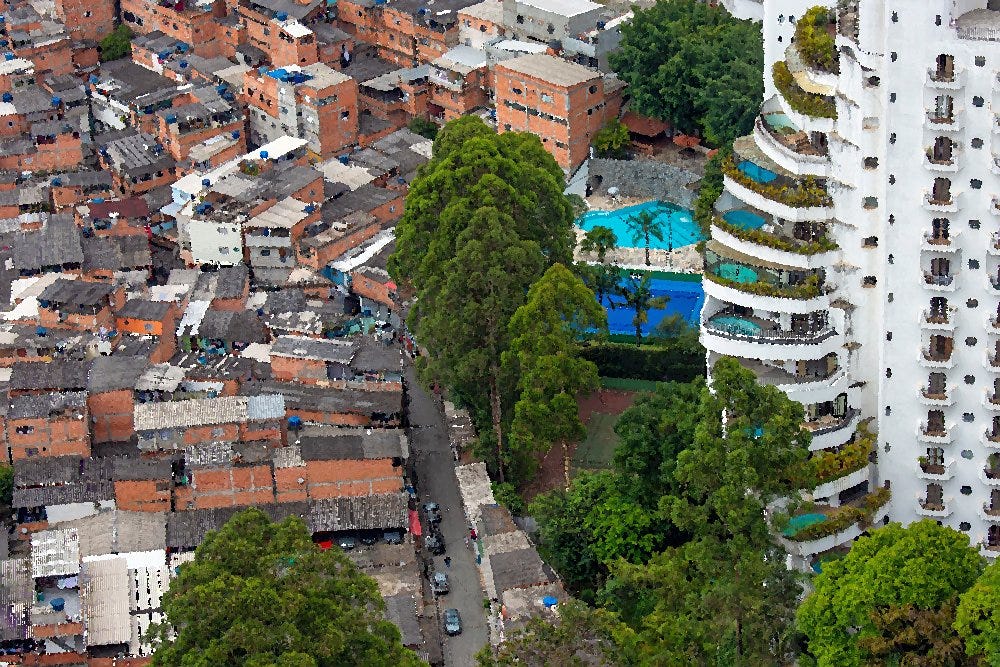The Connection Between "Crime" and Hope
The consistent and simultaneous fall in violent crime rates for USA, and every other developed country, over past 20 years has baffled “experts”. But that has not stopped these morons have offered a multitude of conflicting explanations for this phenomena, ranging from reduction in childhood exposure to lead, older median age of population, more police to legalized abortion, longer prison sentences etc. But there are two major types of problems with all such explanations.
1] They assume A leads to B. For example- Low 'IQ' due to childhood lead exposure = more 'criminal' behavior or longer prison sentences = fewer felons on the street.
2] They assume that crime is not a manifestation of something far more deep-seated.
Let us start by trying to define what 'crime' is, and is not. What make any given action a crime or not? Is it the net negative effect of said action or behavior on society or is it something else. While I have partially answered that particular question in one of my older posts, let me summarize it again: All 'crimes' are defined by the laws, rules and regulations prevalent in that society rather than the impact of those actions on it.
Here are a few examples. Consider prostitution, which at its core is an exchange of sex for money. Why is it illegal in some countries such as the USA? Is the exchange of sex for money in prostitution fundamentally different from a similar exchange occurring in the course of a marriage, cohabitational relationship or creation of a pornographic film? Or take drugs such as marijuana or opiates.. isn't the criminality associated with them due to them illegal in the first place rather than their effect on human behavior?
What about the onerous rules and regulations of HOAs in gated communities? Do they serve any purpose other than mollify the egos of a few prissy bitches with control issues? What about laws, rules and regulations used by corporate monopolies and oligopolies to extract more rent or hinder competition? You get the point and this brings me to another point which I made in that post
Laws are made by those with power to maintain and extend their parasitic behaviors.
All 'crimes' should be seen as attempts by the less-powerful to do what more-powerful are already doing. Don't believe me? Here are a few examples: the system will labels you as a 'murderer' if you kill another human being, but is OK with it if you are a cop- even if you killed the “wrong” person. Similarly, death caused by a negligent physician will almost never result in prosecution, but try doing that if you don't have a medical license. Or consider how easy it is for a business to declare bankruptcy and stiff its creditors as compared to doing it via personal bankruptcy.
Which brings us to one of the more peculiar question about the motivations behind committing 'crimes’: What combination of factors, circumstances and conditions makes the risk of getting caught worth the potential payoff? A few of you might say that people who commit 'crimes' do so because they cannot accurately assess the risks because of their supposedly low 'IQ', have poor future time-orientation or some other assorted bullshit reason. I think otherwise because the very fact that all those laws, rules, regulations, penalties and prisons have been unable to stop 'crime' suggest that there is something else, and far more powerful, driving the need to do it.
I believe that all 'crime' is driven by the HOPE for a better future.
People sell sex and drugs because they want more money and a better life. Organized crime exists because its members can reasonably expect more income and a better lifestyle that otherwise. Also note that most 'criminals' always try to maximize their life-expectancy and profit rather than go all out nihilistic and watch the world burn. I therefore see 'crime' as an expression of hope in the future of that society.
'Crime' rates in USA were high during the 1960s-1990s because those who committed 'crimes' still had high hopes of a better future. Similarly the high rates of 'crimes' in South- and Central- American countries should be seen as an expression of faith in the future viability of those societies. It is, therefore, no accident that low-crime societies like Japan, South Korea, Germany, Switzerland, Sweden etc are also full of people who have fully absorbed the ideology of materialism in their personal lives and have no hope for a better future. If you don't believe me, look at their fertility rates. How else do you explain the decision of so many in those societies, who otherwise live safe and comfortable lives, to not have any kids?
They have already figured out (at some level) that their rigid, formulaic and decaying societies do not offer a realistic chance for a better future. However they are also not opting for suicide without a good reason. So they just go through the motions of being alive in a somewhat detached manner, if only to keep up the appearance of purpose.
We also cannot forget the role of medical technology, specifically contraception, in enabling this to occur on a scale unthinkable in any previous era. In previous eras, surplus fertility would have quickly provided new suckers to replace the disenchanted and world-weary. However, that is not the case today and not just in the more affluent countries. Even the less affluent ones such as India, China, Iran, Saudi Arabia, Mexico and Brazil have fertility rates that are near, at or below replacement levels. We just don't have that seemingly infinite supply of new suckers anymore.
What do you think? Comments?


